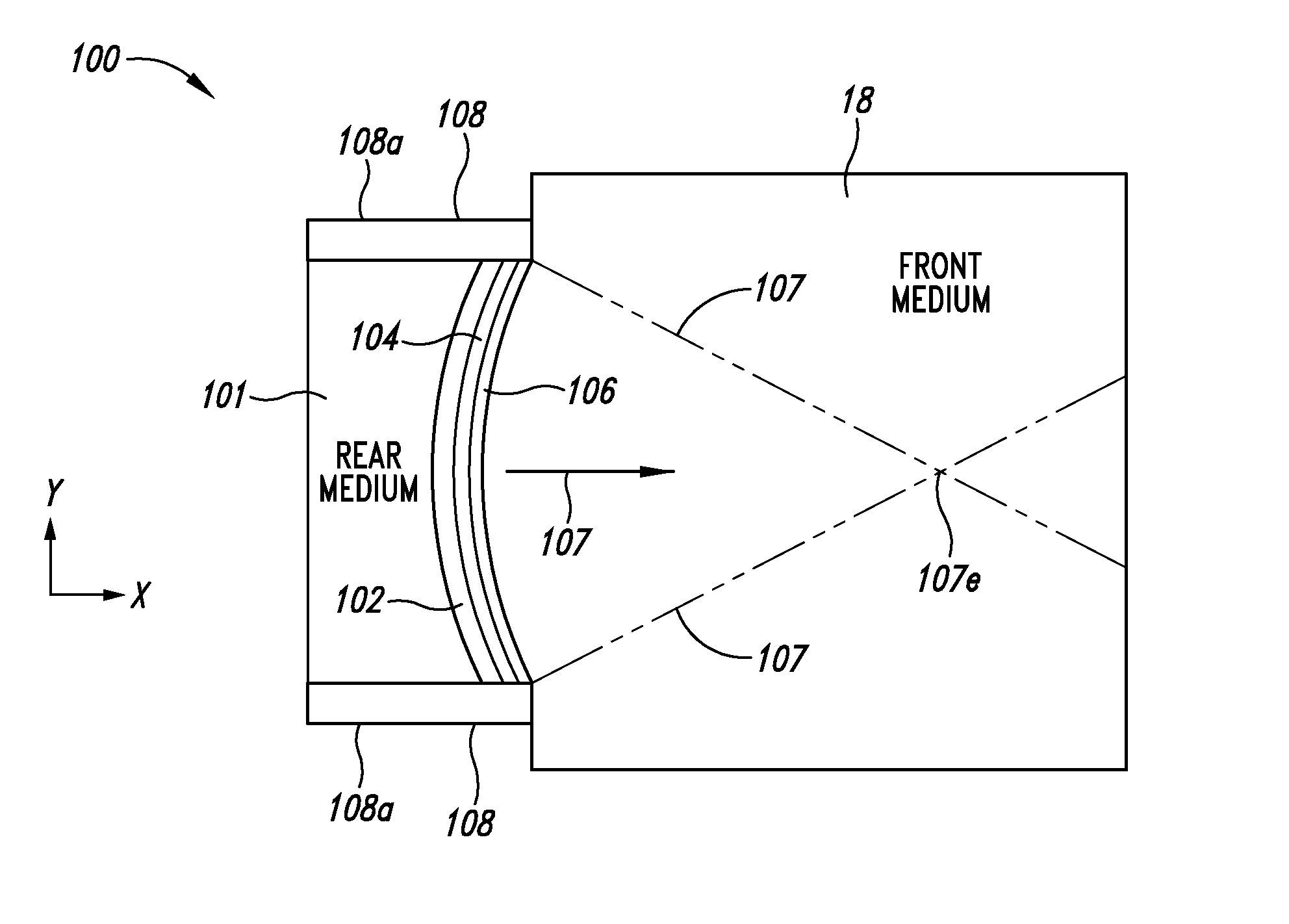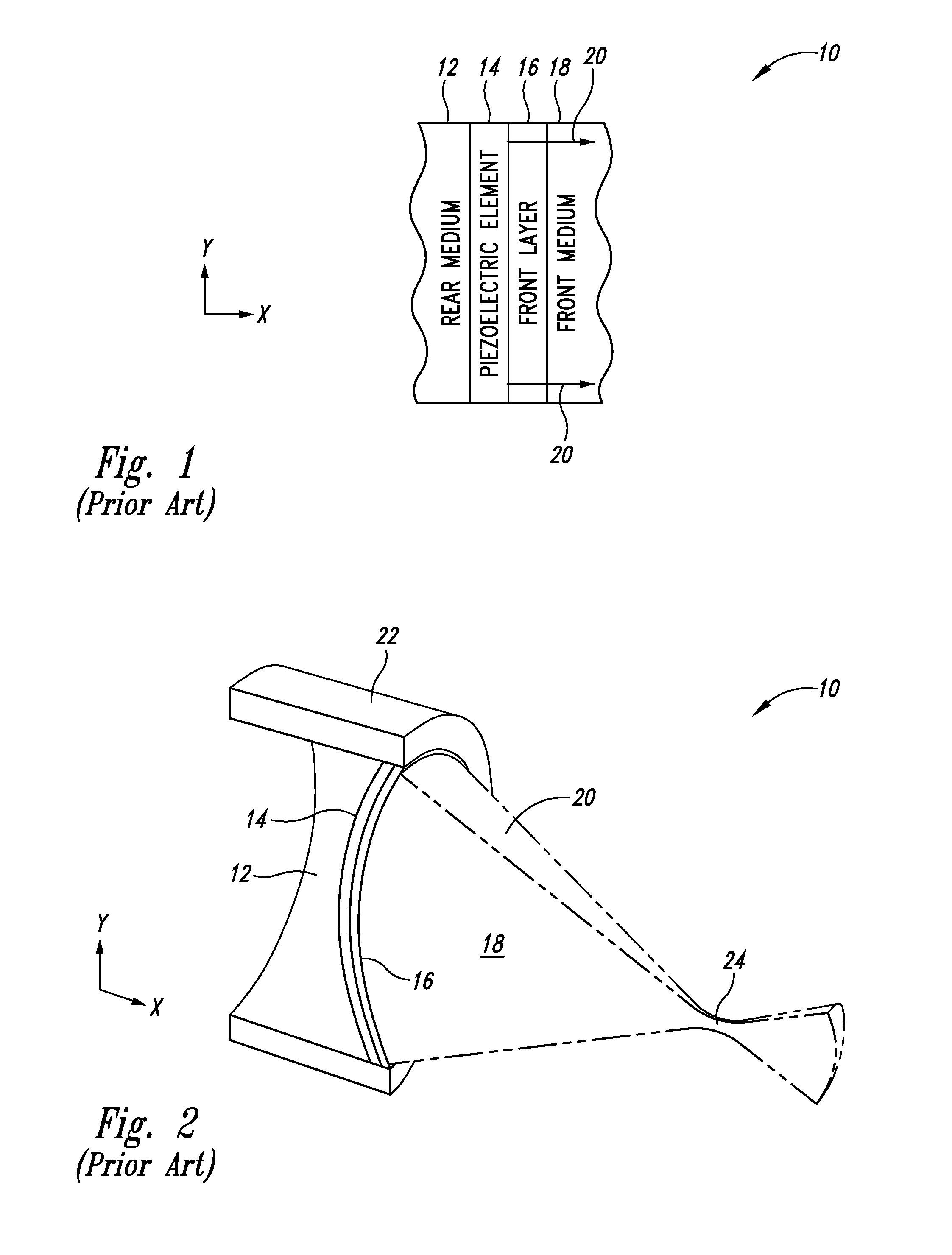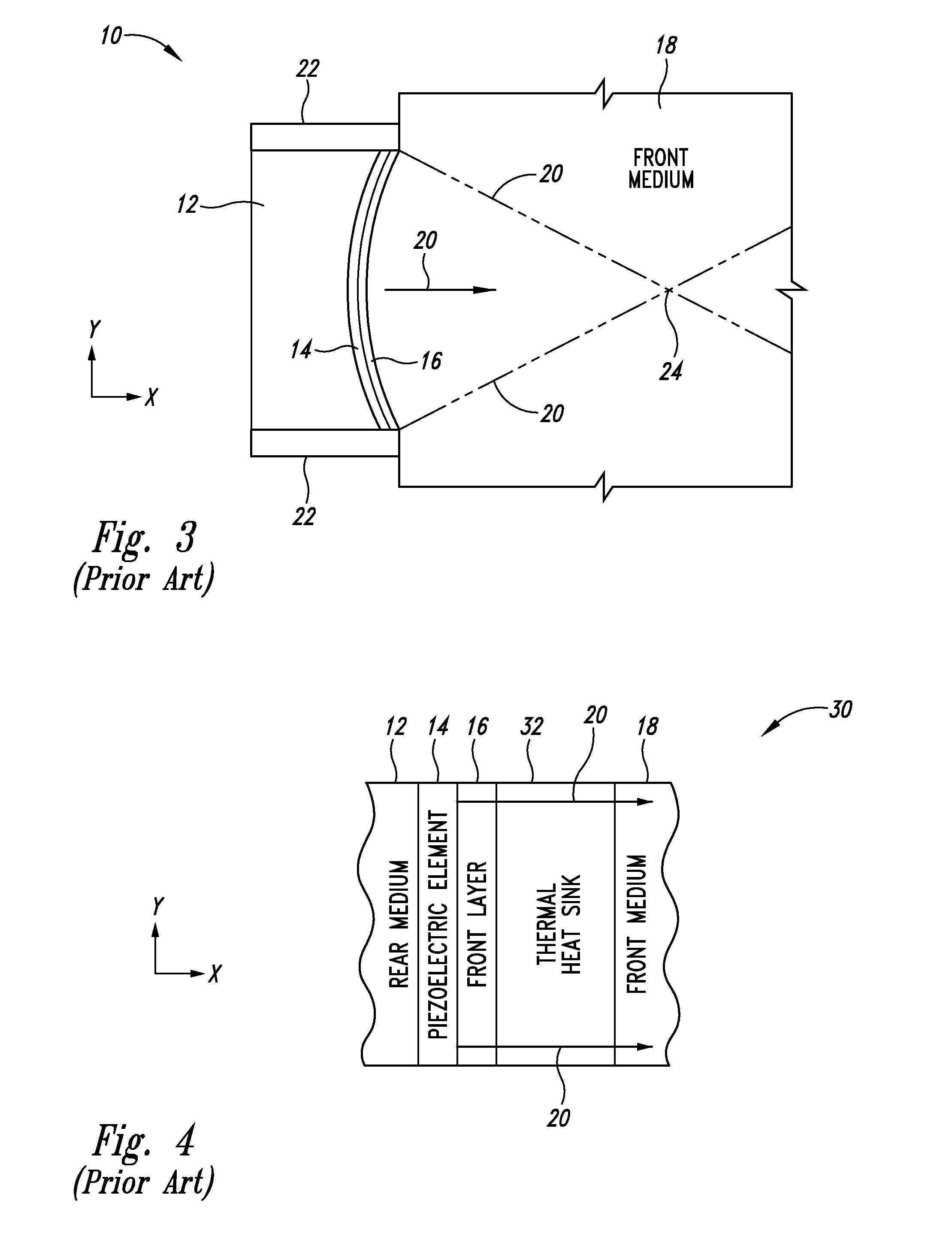Thermally enhanced ultrasound transducer system
a transducer and ultrasound technology, applied in the field of ultrasonic transducers, can solve the problems of affecting the performance of the transducer, generating unwanted heat, and unwanted hea
- Summary
- Abstract
- Description
- Claims
- Application Information
AI Technical Summary
Problems solved by technology
Method used
Image
Examples
Embodiment Construction
[0054] A system and method for removing unwanted heat generated by a piezoelectric element of an ultrasound transducer while maintaining transducer efficiencies is disclosed herein. In some implementations, relatively small amounts of high thermal conductivity (HTC) material are placed in juxtaposition with the piezoelectric element on front and / or back surfaces of the piezoelectric element. Generally HTC materials have a thermal conductivity of over 100 W / mC. Some HTC materials can include metals and other materials of high thermal conductivity (for instance, aluminum at approximately 205-237 W / mC, copper at approximately 385-401 W / mC, gold at approximately 314-318 W / mC, silver at 406-429 W / mC, brass at approximately 109-159 W / mC, impure diamond at approximately 1,000 W / mC, and purified synthetic diamond at approximately 2,000-2,500 W / mC thermal conductivity).
[0055] The HTC material can be thermally coupled to one or more heat sinks, which can be integrated with the ultrasound tra...
PUM
 Login to View More
Login to View More Abstract
Description
Claims
Application Information
 Login to View More
Login to View More - R&D
- Intellectual Property
- Life Sciences
- Materials
- Tech Scout
- Unparalleled Data Quality
- Higher Quality Content
- 60% Fewer Hallucinations
Browse by: Latest US Patents, China's latest patents, Technical Efficacy Thesaurus, Application Domain, Technology Topic, Popular Technical Reports.
© 2025 PatSnap. All rights reserved.Legal|Privacy policy|Modern Slavery Act Transparency Statement|Sitemap|About US| Contact US: help@patsnap.com



